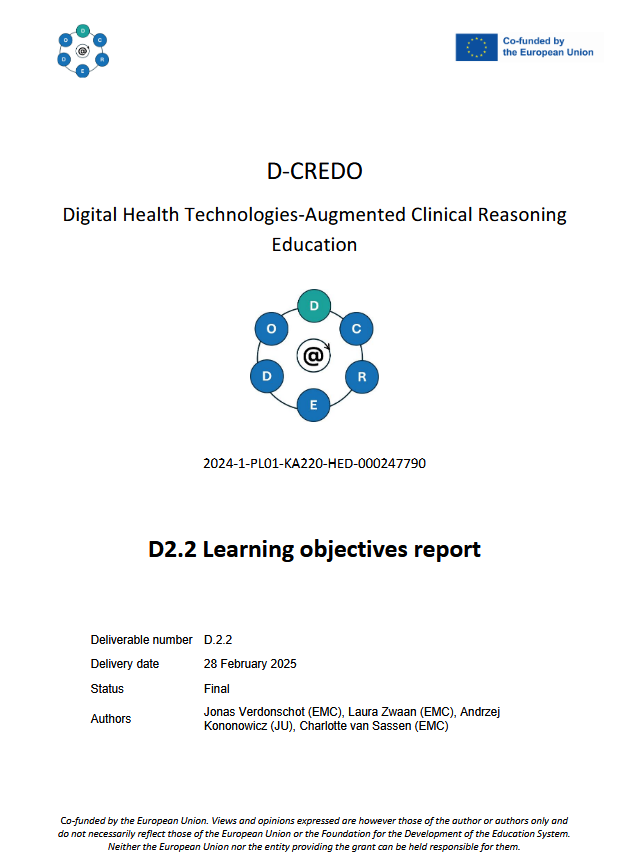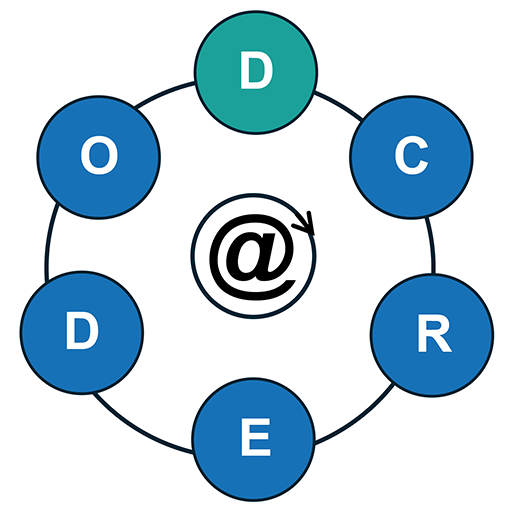As digital health technologies rapidly evolve, medical and nursing students—and their teachers—must adapt. But how can we ensure that educational programs keep pace with innovations like AI, EHR systems, wearables, or telehealth?
In the D-CREDO project, we’ve taken a major step in answering that question: by developing a consensus-based set of learning objectives (LOs) to support clinical reasoning education in the digital age.

Why Learning Objectives Matter! Following the foundational insights from our rapid review (Deliverable 2.1), we turned our attention to shaping what learners actually need to achieve. Learning objectives define the core competencies and provide structure to any curriculum. In D-CREDO, they serve as the backbone for the Learning Units (LUs) we’re going to build.
Our goal? A shared, adaptable framework that prepares both students and educators to use digital tools effectively in clinical reasoning.
From Literature to Consensus! To create a robust and relevant set of LOs, we used a modified Delphi-inspired process involving:
- Collection of 118 LOs from academic literature, national guidelines, institutional frameworks, and stakeholder interviews.
- Refinement through collaborative discussions across D-CREDO partner institutions.
- Survey validation by 30 experts from 10 countries, rating the LOs on relevance, clarity, and feasibility.
- Final consensus meeting, where feedback was integrated into a polished set of 27 learning objectives.
These LOs were not just crafted—they were carefully categorized by cognitive complexity (Bloom’s taxonomy), target group, applicable digital health tool, and mapped to DID-ACT themes.
What We Achieved! The final set of 27 learning objectives covers five categories of digital tools:
- AI in Image Analysis
- Large Language Models & Big Data
- mHealth Apps & Wearables
- Electronic Health Records & CDSS
- Telehealth
Each LO is designed to help students not only use these tools but to critically evaluate, integrate, and reflect on them in clinical decision-making. Educator-focused objectives ensure teachers are equally equipped to support this transition.
What’s Next? These learning objectives are more than a checklist. They are a foundation—guiding the development of our digital learning units and our upcoming White Paper. As digital tools become central to healthcare, clinical reasoning education must evolve accordingly. With this outcome-based framework, D-CREDO is laying the groundwork for a scalable, forward-looking curriculum that equips future health professionals for the challenges and opportunities ahead.
Want to dive deeper? Check out the full list of learning objectives on our project website. Stay connected with D-CREDO and follow our journey on LinkedIn for more updates, insights, and stories.





